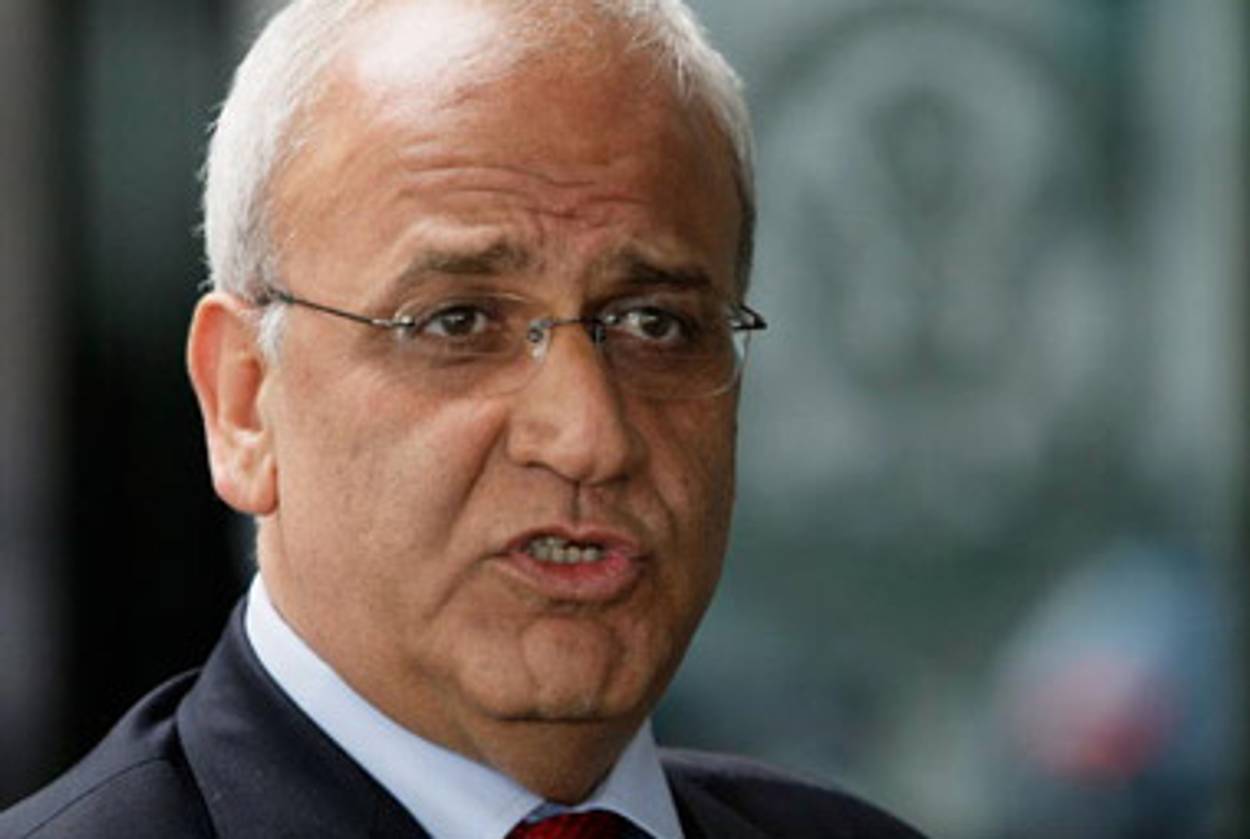Palestinians Threaten Declaration of Statehood
Israel rejects unilateral move; analysts argue peace process is dead




It hasn’t been a good few days for the Israeli-Palestinian peace process. Over the weekend, Palestinian negotiator Saeb Erekat announced he would force the whole issue by going to the U.N. Security Council and demanding recognition of a Palestinian state covering the West Bank, Gaza, and East Jerusalem. Israeli Prime Minister Benjamin Netanyahu responded by saying that any unilateral declaration of statehood by the Palestinians would nullify existing agreements and draw reciprocal “unilateral steps” from Israel’s side—a threat that may, according to the Jerusalem Post’s Yaakov Katz, potentially include practical measures like cutting off the supply of desalinated water into the West Bank, or, as Environment Minister Gilad Erdan threatened this morning, wholesale annexation of Jewish settlements in the West Bank.
The question now is whether all this noise is just that, or a sign that the dream of achieving a single, encompassing peace settlement is turning into a nightmare full of dissatisfaction and mutual resentment. Indeed, a growing chorus seems to be suggesting that the whole existing framework of discussions—all pointed in the direction of achieving “final status negotiations” around a two-state deal—should just be dropped. New York Times columnist Tom Friedman wrote last week that “this dysfunctional ‘peace process’” was achieving nothing except weakening the Obama Administration. Now, in the latest issue of the New York Review of Books, Hussein Agha and Robert Malley—who helped arrange the failed Camp David summit in 2000—argue that since 16 years of negotiations have failed to produce a viable two-state agreement, Obama ought to look for some interim solution. Trouble is, no one really knows what a good short-term deal would look like, either. “How such an interim arrangement would work is hard to fathom,” the two men write. “But is an end-of-conflict settlement is out of reach, and the status quo out of the question, options that fall somewhere in between deserve at least serious exploration.”
Palestinians to Seek U.N. Endorsement of Statehood [AP]
Israel & Palestine: Can They Start Over? [NYRB]
Allison Hoffman is a senior editor at Tablet Magazine. Her Twitter feed is @allisont_dc.